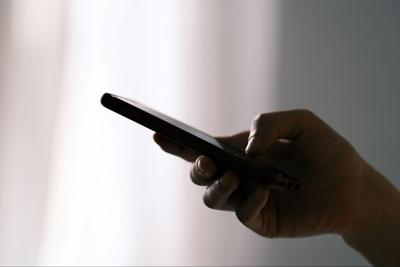A widespread text message scam is targeting people across the country with fake toll violation notices, according to Wood TV. Sue Walters from Hudsonville had just returned from a spring break road trip when she received what appeared to be an E-ZPass text message claiming she owed $6.68 for a toll violation. Though initially suspicious, Walters considered it might be legitimate since she had recently crossed the Ohio River. A follow-up "final notice" text warned of "severe consequences" for non-payment, including potential vehicle registration suspension, as reported by Wood TV.
After replying "Y" as instructed, Walters was directed to a website mimicking the official E-ZPass site. She entered her credit card information but became alarmed when prompted for an additional card. Wood TV documents how Walters then noticed other warning signs, including grammatical errors and the slightly altered website domain (e-zapass.com). She immediately canceled her card before any charges were processed. This scam is part of a larger "smishing" campaign impersonating legitimate tolling agencies using threats to extract sensitive information.
The Illinois Tollway has issued a statement warning customers about these fraudulent text messages that falsely claim unpaid tolls, NBC Chicago reports. These scam messages are not connected to the Illinois Tollway or its customer data and have been reported in multiple states nationwide. According to NBC Chicago, officials are advising customers to disregard these phishing texts entirely. For those uncertain about whether they might actually owe tolls, the Illinois Tollway recommends checking accounts online at www.illinoistollway.com or calling their customer service center at 1-800-UC-IPASS during weekday business hours from 7 a.m. to 7 p.m.
The Daily Herald reveals that numerous I-PASS users have received fake messages with ominous warnings like "this is your FINAL official notice" regarding alleged unpaid tolls. These messages typically demand payment by a specific deadline (April 25, 2025, in one example) and threaten "serious consequences" for non-compliance. Authorities cited by the Daily Herald point out that the urgent tone and demand to click suspicious links should be immediate red flags to recipients.
The Daily Herald explains that recipients of suspicious texts should verify the sender's identity, noting that one fraudulent sender's ID began with "mugaianot8777not"—clearly not a government source. Officials recommend reporting these phishing attempts to the Federal Trade Commission or the FBI's Internet Crime Complaint Center. Additional protective measures advised by the Illinois attorney general's office include never sharing Social Security numbers or banking information unless you're certain of the recipient's identity, recognizing that government agencies typically don't request personal information through texts or emails, taking time to verify sources despite urgency claims, avoiding links in unexpected messages, and not responding to suspicious texts as this confirms your number is active, according to the Daily Herald's comprehensive coverage of protection strategies.








(0) comments
Welcome to the discussion.
Log In
Keep it Clean. Please avoid obscene, vulgar, lewd, racist or sexually-oriented language.
PLEASE TURN OFF YOUR CAPS LOCK.
Don't Threaten. Threats of harming another person will not be tolerated.
Be Truthful. Don't knowingly lie about anyone or anything.
Be Nice. No racism, sexism or any sort of -ism that is degrading to another person.
Be Proactive. Use the 'Report' link on each comment to let us know of abusive posts.
Share with Us. We'd love to hear eyewitness accounts, the history behind an article.